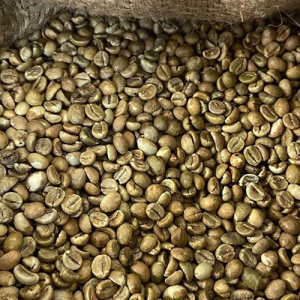It is a beautiful tradition for unification over and above being just a drink; it is believed that Ethiopian is the origin of coffee itself, and this culture owns different ways of preparing it or presenting it to drinkers, with special methods in aroma richness, flavor, and great aromas. Making coffee Ethiopian style is easily done right at home. Be prepared for patience; love is more than enough.
It is all about today; we will take you step-by-step preparation for Ethiopian coffee. Be it a coffee connoisseur or a beginner, just an entry in an effort to take you on the right cup. In this blog, by the end of the day, you will have learned to brew it with your friends and enjoy the delight of Ethiopia. Let us begin to take the flavors of Ethiopia back home.
What You Will Need to Make Ethiopian Coffee?
Now that we have everything set before we begin let’s get started. Making traditional Ethiopian coffee requires the simplest tools and ingredients that come to mind:
- Raw Green Coffee Beans– The freshest you could find.
- A Pan or Coffee Roaster– To roast those coffee beans.
- A Grinder – To grind the roasted coffee beans.
- A Jebena – Traditional coffee pot. If that is not around, a little pot will work.
- Water – Filtered and fresh water should be provided
- Coffee Cups – The small kids all opt for this
Add-Ons – Sugar
Now, let’s get all set, and we will start brewing the Ethiopian coffee!
Step 1: Roasting the Coffee Beans
First comes the roasting of the coffee beans in the process of brewing Ethiopian coffee. All the Ethiopian coffee starts with green coffee beans. Here’s what you have to do
- Put the green coffee beans in a pan.
- Heat the pan over medium flame.
- Keep stirring all the time to avoid burning them.
- They will turn golden brown gradually. Keep on stirring!
- When they get dark brown with a lovely aroma, remove from the heat.
The roasting of the beans is what will fill your house with that rich, strong aroma of coffee. This takes about 10-15 minutes, so be patient. Once done, let the beans cool for a few minutes.
Step 2: Grind the Coffee Beans
It would help if you ground the roasted beans. Grinding will break the beans into powder that you use to make the coffee.
Put the roasted beans in the coffee grinder.
Grind them to a fine, silky consistency.
If you don’t have a grinder, do not worry; you can always make use of a mortar and pestle. They pound them traditionally in Ethiopia, grinding the beans using the same tool by hand. Extra effort added through the effort of hand grinding makes the difference.
Step 3: Brew Your Coffee
And the good times now begin: brewing coffee. The Ethiopians use a Jebena, in this case a clay coffee pot to brew coffee. But one need not have a Jebena-a small regular pot will do instead.
This is how you would go about it:
- Water the pot and put it on the stove
- Heat the water until just warm, not boiling.
- Add the ground coffee. Take two tablespoons of coffee per cup of water.
- Stir gently until the water begins to boil.
- Reduce the heat as the coffee is boiling to simmer.
- Continue to simmer for 5-7 minutes.
This stage of letting the coffee simmer releases deep flavors and strong boldness inside the coffee. Be patient because that’s where the magic begins!
Step 4: Serve Coffee
Ethiopian coffee preparation is very romantic. You are not actually drinking the coffee; it’s rather enjoying a good time and sharing company. Now, serve it down low:
- Pour it very carefully into the little cups with one slow and steady hand, and do not spill the same. Traditionally, the filter is not an Ethiopian’s use. Pour him gently with the grounds remaining in that pot.
- If it tastes a little sweet, then add sugar. However, Ethiopians tend to add a pinch of salt or butter instead of sugar.
- Ethiopian coffee is traditionally made with popcorn, roasted barley, or bread. The snacks are good to be accompanied by the flavors of coffee.
Ethiopian Coffee Tradition
Ethiopian coffee is not to be drunk. It forms part of a broader tradition referred to as the Ethiopian Coffee Ceremony, where families and friends meet to roast, brew, and gradually sip coffee in beautiful procedures at times full of laughter and stories.
It is served in three rounds in Ethiopia
- Abol- The first round that is the strongest.
- Tona – The less bitter second.
- Bereka – The mildest, third round.
Each round is about friendship, respect, and bonding. You can get closer to others when you share coffee this way. You may even make it in your comfort but call your family members over.
How to Brew Perfect Ethiopian Coffee?
These are some easy ways in which you can make your Ethiopian coffee taste great:
- Fresh Beans – Green coffee beans freshly used always make the best coffee.
- Roast Evenly – Tumble beans throughout roasting time so they will not burn.
- Do Not Rush – Simmering is how one allows the full flavor to come out.
- Use Just Enough-Too much coffee is too strong, and not enough is too weak.
- Share with your Family and Snack along the way.
And so, with these guidelines, Ethiopian coffee will always come out perfect!
Conclusion:
Ethiopian coffee is not only a drink, but it is also a tradition of love, warmth, and closeness. Factually speaking, brewing Ethiopian coffee is pretty easy, playful, and highly rewarding, from the roasting process of beans to the very last sip in your hands. This is full of freshly brewed coffee aroma and brings warmth to everyone within the realm of proximity.
This guide is going to let you easily make Ethiopian coffee within the walls of your home. Using this guide, you are sure to fall again in love with coffee with its fresh taste bold flavor, and beautiful experience. Get your tools and invite your family to start brewing!
Share your love for Ethiopian coffee. For, indeed, most people like spending great coffee time with loved ones. Make your new tradition now and indulge in your favorite every sip.



